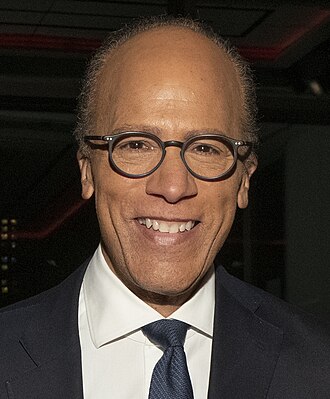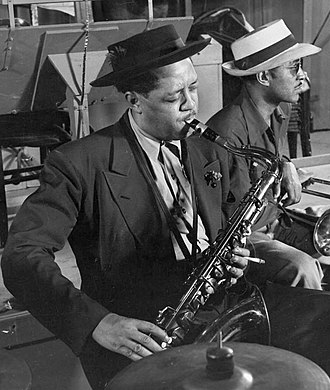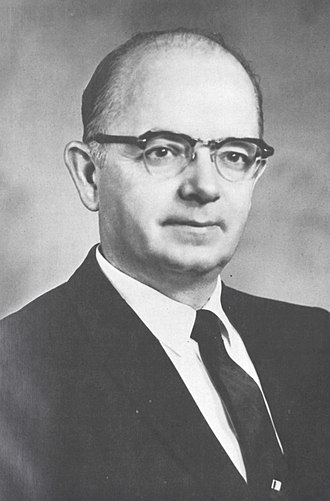Discover Your Roots
SIGN UPDiscover Your Roots
SIGN UPLester is a male name of English origin, derived from the city of Leicester, England. Its meaning, "From Leicester, England," reflects its historical roots as an ancient Anglo-Saxon surname and given name. Notable individuals bearing the name Lester include Lester Bangs, an American music critic, Lester Flatt, an American bluegrass musician, and Lester Young, an American jazz tenor saxophonist. Additionally, it is also used as a surname for prominent figures such as Adrian Lester, a British actor, and Richard Lester, a British film director. The name Lester has also been featured in various fictional works, such as the character Lester Burnham in the film American Beauty and Lester Papadopoulos in the Trials of Apollo book series.

Lester Don Holt Jr. is an American news anchor known for his work on NBC Nightly News and Dateline NBC. Born on March 8, 1959, in California, Holt made history as the first Black male solo anchor for a major network newscast. He gained recognition as the most trusted TV news anchor in America, according to a 2018 poll. Holt's broadcasting career began with a disc jockey job at a local radio station in Alaska and later expanded to reporting, anchoring, and international correspondence roles at CBS and NBC News. He moderated the first presidential debate in 2016 and conducted a notable interview with President Donald Trump in 2017. After a successful tenure at NBC Nightly News, Holt is set to become the full-time host of Dateline after leaving the evening news program in summer 2025. Throughout his career, Holt has demonstrated his versatility by hosting various programs and specials, showcasing his expertise across different genres and subjects.

Lester Bowles Pearson (23 April 1897 – 27 December 1972) was a prominent Canadian politician, diplomat, and scholar who served as the 14th prime minister of Canada from 1963 to 1968. Born in Newtonbrook, Ontario, Pearson began his career in the Department of External Affairs and later became Canada's ambassador to the United States. He entered politics in 1948 and served as Secretary of State for External Affairs. Pearson's international influence was evident when he served as the seventh president of the United Nations General Assembly and won the Nobel Peace Prize in 1957 for his role in resolving the Suez Canal Crisis. As prime minister, Pearson's progressive policies included the introduction of universal health care, the Canada Student Loan Program, and the Canada Pension Plan. He also initiated significant changes in foreign policy, such as signing the Auto Pact with the United States and keeping Canada out of the Vietnam War. Pearson's government oversaw the creation of the Maple Leaf flag in 1965 and the Canadian Centennial celebrations in 1967. Additionally, he is credited with establishing the Royal Commissions on Bilingualism and Biculturalism, the Status of Women, and the Order of Canada. Pearson's impact on Canadian politics and international diplomacy has cemented his legacy as one of the most influential Canadians of the 20th century and is regarded as among the greatest Canadian prime ministers. His sporting interests during his education and early life included excelling in rugby

Lester Bangs, born on December 14, 1948, was a prominent American music journalist, critic, and performing musician. Hailing from Escondido, California, his early influences included the Beat Generation, jazz musicians like John Coltrane and Miles Davis, as well as comic books and science fiction. Bangs gained recognition through his writing for Rolling Stone and Creem magazines, where he fearlessly critiqued albums and artists, often employing a radical and confrontational style. His impact extended beyond music criticism, influencing the punk rock movement and related social and political spheres. Bangs also contributed to publications such as The Village Voice, Penthouse, and New Musical Express. Tragically, he passed away on April 30, 1982, at the age of 33, leaving behind a legacy as "America's greatest rock critic," as described by music critic Jim DeRogatis. Bangs's distinctive writing style, filled with cultural references and bold commentary, continues to inspire and resonate with readers and music enthusiasts to this day.

Lester Willis Young, also known as "Pres" or "Prez," was a renowned American jazz tenor saxophonist and occasional clarinetist. He gained prominence as a member of Count Basie's orchestra and became one of the most influential players on his instrument. Young's distinct style was characterized by a relaxed, cool tone, sophisticated harmonies, and the use of hipster jargon associated with the music. Born on August 27, 1909, in Woodville, Mississippi, Young grew up in a musical family and developed a passion for music from an early age. He played with various bands and rose to prominence in Kansas City, where he joined Count Basie's orchestra. Young's influential career included collaborations with notable musicians such as Billie Holiday and Teddy Wilson. Despite leaving the Basie band in 1940, he continued to lead small groups and contribute to the jazz scene. Lester Young's legacy as a groundbreaking jazz musician continues to inspire and influence musicians and jazz enthusiasts worldwide.

Lester Garfield Maddox Sr. was an American politician known for his tenure as the 75th governor of Georgia from 1967 to 1971. Born in Atlanta, Georgia, Maddox left school before graduating to support his family. He worked at the Bell Aircraft factory during World War II and later opened the Pickrick Restaurant, where he gained notoriety for his staunch segregationist stance, refusing to serve African-American customers in violation of the Civil Rights Act of 1964. Maddox's resistance to integration led to the closure of his restaurant and legal battles, during which he gained the support of segregationists. Despite his controversial reputation, he had a significant impact on Georgia's political landscape, serving as lieutenant governor and running for president in 1976. Maddox's legacy is marked by his unwavering stance on segregation and his influence on the civil rights movement in the United States.
All images displayed on this page are sourced from Wikipedia or Wikimedia Commons.We use these images under their respective Creative Commons or public domain licenses. Wherever applicable, author attributions and license information are provided. If you believe an image is used incorrectly or outside its license terms, please contact us so that we can review and correct the issue.